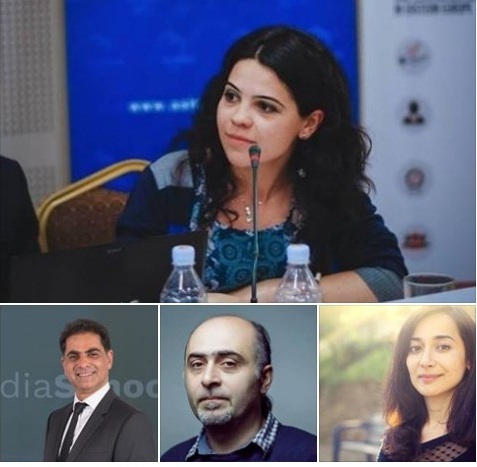Discussion on “Turkish and Azerbaijani Lobbies in Europe” held during 4th Congress of European-Armenians

On October 18, the second roundtable of the 4th Congress of European-Armenians, which was held at the Armenian Home in Brussels, was entitled “The Turkish and Azerbaijani Lobbies in Europe” and moderated by representative of the Office of the ARF-D Armenian National Committee of Europe for European Affairs Heghine Evinyan, who stated that the topic is very current and important and needs to be discussed from different perspectives.
Hayern Aysor, citing Lebanon’s Aztag Armenian Daily, reports that the speaker stated that the Turkish and Azerbaijani lobbies refer to 6-7 arguments, but they also take illegitimate measures in connection with corruption.
Programs Director of the Office of the European Friends of Armenia Organization in Yerevan Tatevik Hayrapetyan informed that the European Friends of Armenia Organization is a six-member group that operates via the offices in Brussels and Yerevan. She presented several Turkish and Azerbaijani lobbying organizations and the directions of their activities. Hayrapetyan also stated that the lobbying organizations of both countries collaborate over certain issues. The speaker regretted to inform that actions against democracy and human rights are being carried under the influence of money in Europe, which is an advocate of democracy.
Founder of several centers for media studies Mourad Papazian informed that the Turkish and Azerbaijani lobbies are the same, have the same resources and state funding and have adopted the policy of doing their best to destroy the Armenian lobby. He also stated that the Republic of Armenia does not provide funding for the Armenian lobby, while the Turks and Azerbaijanis are funded by their respective governments and are considered the agents of Erdogan and Aliyev, while the Armenians are the citizens of their countries.
Information security and media expert Samvel Martirosyan informed that the Armenian-Turkish conflict is active on social networks and that social networks are considered one of the fronts of that conflict. Turkey and Azerbaijan are growing on those networks, and Turkey-based Azerbaijanis have a great influence.
The expert stated that Azerbaijan is more offensive than Turkey in regard to denial of the Armenian Genocide, and Turkish nationalists are more active in spreading materials devoted to the Artsakh issue. Both sides have multiple users for advocacy on the Internet.




 Արևելահայերեն
Արևելահայերեն Արևմտահայերեն
Արևմտահայերեն Русский
Русский






